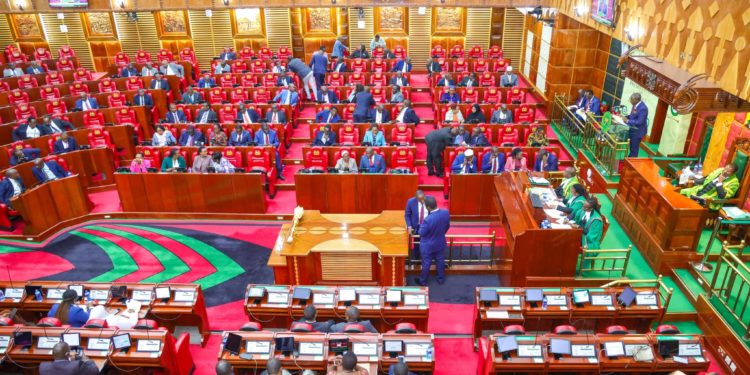The National Assembly has initiated steps to overhaul the management of public bursaries and scholarship programs, following concerns about inefficiencies and duplication. The move, driven by a recent petition and a High Court case, seeks to establish a more coordinated system for distributing educational funds, aiming to enhance transparency and effectiveness.
In a letter dated August 14, 2024, addressed to Dr. Belio Kipsang, Principal Secretary of the Ministry of Education, Samuel Njoroge, Clerk of the National Assembly, detailed the Assembly’s commitment to reform. The letter highlights a petition that has exposed significant issues with the current approach to awarding public financial aid for education.
The petitioners argue that the uncoordinated efforts of the Ministry of Education, the National Government Constituencies Development Fund (NGCDF), and county governments have led to overlaps and inefficiencies in the distribution process.
“The current uncoordinated approach towards the issuance of bursaries and scholarships has, in some instances, led to a duplication of awards,” Njoroge wrote.
Education in Kenya is supported by a network of institutions and channels, each receiving funding from the national government. This includes the National Government Affirmative Action Fund, which supports youth through education, entrepreneurship, and sports; HELB loans for students in higher education; the NGCDF, which provides bursaries to orphans and vulnerable students at secondary and tertiary levels; and County Governments that allocate funds for local bursaries.
Additionally, the Universities Fund was established under the Universities Act, 2012 to finance universities, while the Presidential Secondary School Bursary (PSSB) is a flagship project of Vision 2030 aimed at reducing illiteracy and improving transitions from primary to secondary education.
Despite these multiple channels of support, audit reports frequently highlight issues of wastage and inefficiency. The letter notes that these inefficiencies have prompted legal action.
The Speaker of the National Assembly has directed the drafting of a legislative proposal to create a defined structure for managing these educational funds. The proposed legislation aims to centralize the administration of bursaries and scholarships, thereby reducing duplication and ensuring a fairer distribution of resources.
In the letter, Njoroge requests that Dr. Kipsang provide any relevant information from the Ministry that could assist in drafting this proposal, including existing policy documents and draft bills. This call for input highlights the collaborative approach the Assembly is adopting to address these issues.
“The National Assembly remains grateful for your continued cooperation and support,” Njoroge added, signaling the importance of inter-agency collaboration in the reform process.


















